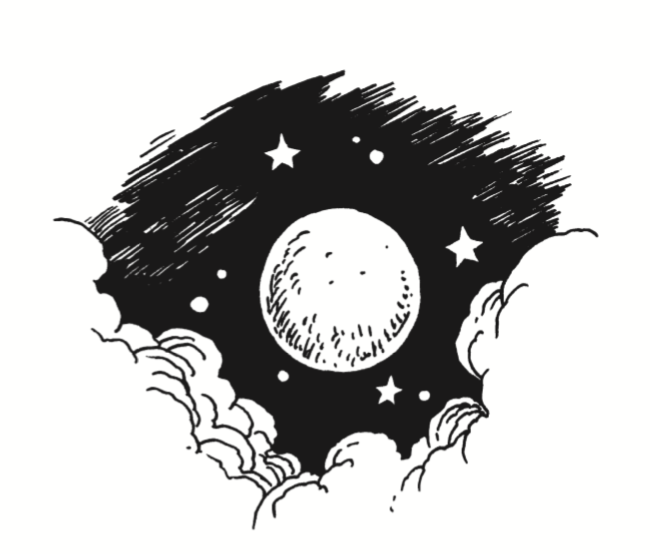Sometimes I go out walking at night. Not only in the summer when the light comes down from the sky the whole day and night too and it’s easy to see for a great distance even well after midnight, and not just in winter either, when the snow lies thick, oozing light from a vertically opposite direction, from the ground up, like the discotheque floor in London where I once danced (but that’s a long time ago now). If it is cold enough it makes you want to dance, it’s true; to hear the dry grating sound when your boots meet the snow with each bounce you make. The sound of tap shoes on the country road on a January night! It’s a good thing then to have your cap on, a good thing that no one can see you blushing. The darkest time in the valley here is in late Novem-ber, before the snow -settles, when all I can see when I open the door and go out on the doorstep are the outside lights of one other farm on the opposite hillside, and all round me the autumn-ploughed fields swallow and smother—each glimmer, each flicker, each flame, and give nothing in return. Then I will probably put my jacket on, most often the peacoat from the novels I have written, and go out into the yard when I cannot sleep or do not want to sleep. I leave the torch inside. The contrast it creates when I switch it on and the ray of light cutting through the night div-iding every-thing up into a here and a there may reawaken the fear of darkness I had when I was small, which has almost quite vanished now, but in certain situations, at certain mental and geographical points of intersection I cannot calculate or beforehand see coming, it strikes me heavily and leaves me so stiff with terror that in my bad periods I bring my knife from Crete out with me. I grip it tightly round the handle with the naked, sharp metal blade ready for use against all those that crawl around and fill the darkness completely with their slimy, raging, wild bodies, and will do for me at the first possible opportunity.
Then I feel a burning stab of cold in the back of my neck, and nevertheless set off, all the way down through the valley.
Usually it is not like that. On the contrary. Without either knife or torch I walk down the slope from the Gate (as it is called, the place where I live). Sometimes with one of my dogs for company—-pre-ferably Laika, who is youngest and least inclined to laziness—sometimes on...
You have reached your article limit
Sign up for a digital subscription and continue reading all new issues, plus our entire archives, for just $1.50/month.
Already a subscriber? Sign in





